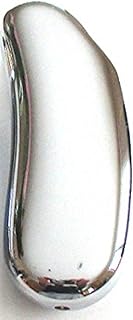The Environmental Impact of BIC Lighters: Can We Do Better?
BIC lighters are ubiquitous, convenient, and seemingly disposable. But their impact on the environment is far from insignificant, raising concerns about their sustainability. Let's delve into the key issues and explore potential solutions:
1. Material Usage and Recycling:
* Plastic: BIC lighters are primarily made of plastic, a non-biodegradable material that contributes to landfill waste and plastic pollution.
* Metal: The flint, spring, and other metal components are recyclable, but their recovery often hinges on proper disposal and recycling systems.
* Limited Recycling: Despite the potential for recycling, BIC lighters are not commonly recycled due to their small size, mixed materials, and lack of dedicated recycling programs.
2. Environmental Contamination:
* Butane Gas: The lighters contain butane, a flammable and potentially harmful gas. Leaking butane contributes to air pollution and greenhouse gas emissions.
* Flint: The flints contain small amounts of rare earth metals, whose mining can have severe environmental consequences.
* Waste Management: Improper disposal can lead to lighters ending up in landfills or the environment, posing hazards to wildlife and ecosystems.
3. Resource Depletion:
* Plastic Production: The extensive use of plastic for lighters puts pressure on fossil fuel resources and contributes to carbon emissions.
* Butane Extraction: Butane production requires natural gas extraction, further impacting ecosystems and contributing to climate change.
Can We Do Better?
While BIC lighters offer convenience, we can strive for more sustainable alternatives:
* Refillable Lighters: Opting for refillable lighters reduces the reliance on single-use disposable products and minimizes plastic waste.
* Biodegradable Materials: Exploring biodegradable plastics and alternative materials could lessen the environmental burden of lighters.
* Improved Recycling Programs: Encouraging and facilitating proper disposal and recycling of lighters can improve material recovery and minimize landfill waste.
* Sustainable Production Practices: Promoting responsible sourcing of materials, reducing energy consumption, and minimizing emissions during manufacturing can lessen the environmental footprint.
* Alternative Fuels: Researching and adopting eco-friendly fuels, such as biobutane, can offer a cleaner alternative to traditional butane.
* Raising Awareness: Educating consumers about the environmental impact of disposable lighters and encouraging them to make informed choices can drive change.
Conclusion:
The widespread use of BIC lighters presents significant environmental challenges. While convenience is a factor, it's crucial to acknowledge and address the negative impacts. By promoting responsible consumption, exploring sustainable alternatives, and encouraging responsible disposal, we can work towards a future where lighters are less of an environmental burden and more of a responsible part of our everyday lives.


